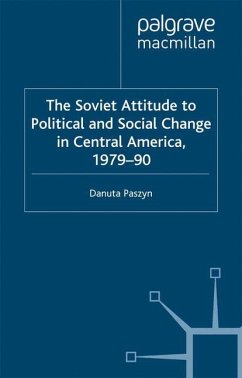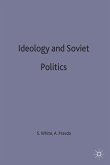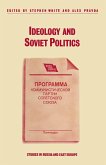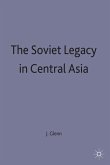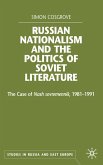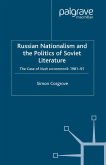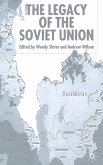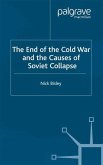The study analyses Soviet policy towards Nicaragua during the rule of the Sandinista National Liberation Front (FSLN) and towards the guerrillas fighting for political and social change in El Salvador and Guatemala. It covers the period from the Sandinista victory in July 1979 until the loss of power in February 1990. This work aims to counter the tendency found in the western literature which over-emphasizes the ideological and strategic factors motivating Soviet policy towards Nicaragua and Central America as a whole.
'The Soviet role in Central America was one of the most controversial aspects of international relations in the 1980s. Seen by Washington as the spearhead of a move onto the mainland of Latin America, and by local radicals as a potential source of military and economic support, the Soviet Union was in reality more pragmatic and cautious than either realised. Basing herself on a wide range of Russian and Western materials, and with the clarity of hindsight, Danuta Paszyn has made an original and valuable contribution to our understanding of this closing phase of the Cold War.' - Professor F. Halliday, London School of Economics and Political Science
'...provides useful background to the changing Soviet policies and attitudes towards radical social change in Central America...' - International History Review
'...this study provides an interesting examination of the Soviet role vis-à-vis the Nicaraguan revolution, which challenges the basic rationale that sustained the US government's counterrevolutionary involvement in Central America. I would recommend this book for courses on US-Latin American relations and the politics of revolution in Latin America.' - Ariel C. Armony, Colby College, Latin American Studies
'...provides useful background to the changing Soviet policies and attitudes towards radical social change in Central America...' - International History Review
'...this study provides an interesting examination of the Soviet role vis-à-vis the Nicaraguan revolution, which challenges the basic rationale that sustained the US government's counterrevolutionary involvement in Central America. I would recommend this book for courses on US-Latin American relations and the politics of revolution in Latin America.' - Ariel C. Armony, Colby College, Latin American Studies

